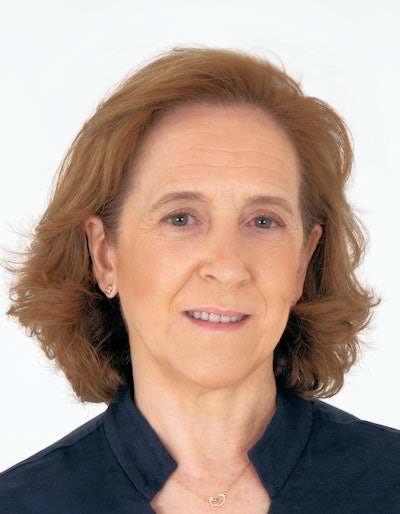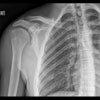
The COVID-19 pandemic has represented a major challenge for all organizers of training programs and board examinations, but everyone at the European Board of Radiology (EBR) have worked tirelessly to identify solutions that minimize the impact on the European Diploma in Radiology (EDiR).
Flexibility has been of paramount importance in preserving the examinations calendar for 2020, relocating the candidates who had already registered in advance and accommodating new candidates imaginatively, as well as creating alternative solutions for organizing the exams.
The fact that the EDiR is completely computer-based has also been of great help. The former oral examination was replaced in 2016 by the Clinically Oriented Reasoning Evaluation (CORE).
All this enabled the EBR to overcome the challenges posed by the pandemic with utmost swiftness by remotely organizing and monitoring 19 exams at 23 different locations. The quality of the exams and the pass rate were both maintained (see table below).
| 2017 | 2018 | 2019 | 2020 | |
| MRQs | 54.61% | 53.71% | 56.72% | 56.19% |
| SCs | 63.65% | 62.92% | 65.55% | 64.45% |
| CORE | 68.78% | 63.79% | 61.44% | 63.03% |
| Pass rate | 67.00% | 66.11% | 65.57% | 69.05% |
The feedback received from candidates and institutions, who suggested keeping this format even in the post COVID-19 era was very positive.
Flexibility and speed
During 2020 and 2021, the EBR was forced to adapt the EDiR to the new circumstances. Organizing worldwide examinations with a high number of candidates was not possible.
This new kind of organization gave rise to some concerns regarding the quality of the EDiR. Therefore, a study to evaluate the results of the examinations between 2017 and 2020 was conducted. The results were reassuring: The average score of each exam section (MRQs, Short Cases and CORE cases) remained stable between 2017-2020 and the percentage of candidates who passed the EDiR was also very similar. See the full report on the EBR website.
A total of 881 candidates applied for the EDiR in 2020. Due to travel restrictions, the EBR enabled and managed 669 reassignments, and out of these, 227 candidates chose to take the examination in 2021. To guarantee the opportunity of sitting the examination to the maximum number of candidates possible, the EBR conducted 19 exams in 23 different locations, despite only eight exams having been originally planned for 2020.
During 2020, the EBR launched the EDiR Simulation, a new tool designed to give candidates a taste of what an EDiR examination is like. The EDiR Simulation contains two parts: The first part consists of an examination (25 MRQs, 8 Short Cases, and 4 CORE cases), and the second part features a 90-minute webinar with two members of the EDiR CORE Committee who answer all questions.
Testimonials
- Prof. Dr. Chantal van Ongeval, head of radiology department, UZ Leuven, Belgium
 Prof. Dr. Chantal van Ongeval.
Prof. Dr. Chantal van Ongeval.Q: How was your experience when organizing the EDiR? How was the support from the EBR office, although they were not onsite?
A: We experienced perfect preparation (including a test run a few weeks before the exam) and perfect support during the exam from the organizing committee. As a matter of fact, the first time in 2020, everything went very well, even when one system had to start up again during the exam. Within a highly secured organization such as our university (Katholieke Universiteit Leuven), it was possible to organize the exam safely. Moreover, the university's technical staff learned a lot from the techniques used by the EDiR committee.
Q: If you had to use three words to describe your experience with the EDiR, what would they be?
A: My three words: precise, pleasant, high-quality.
- Dr. Charlotte De Wilde, trainee radiologist, UZ Ghent, Belgium
Q: When did you take the EDiR? Can you describe the circumstances?
 Dr. Charlotte De Wilde.
Dr. Charlotte De Wilde.A: I took the EDiR in March 2020, just as the whole world went into lockdown. My colleagues and I had been studying for months when we received the message that the ECR and EDiR in Vienna would be canceled. We all experienced immense disappointment when we heard that all of our recent efforts to study for the EDiR had potentially been in vain and the exam would most likely only take place months later. Luckily, we persevered and managed to take the exam in Ghent, Belgium -- thanks to Prof. Dr. Geert Villeirs, Prof. Dr. van Ongeval and the support of the EDiR Scientific Board.
Becoming an EDiR organizer
The EBR has developed a protocol for hospitals and institutions that are interested in organizing the EDiR for their own residents or residents from other national hospitals. This is dependent on their facilities and technical equipment (computers and internet connection), as well as on the capacity of their examination room(s), taking into account the current COVID-19 security measures.
It should be kept in mind that the EBR follows strict protocols in order to determine if the technical equipment of the examination venue is suitable to conduct the EDiR.
To address any doubts or queries and to discuss the organizational aspects of the exam, the whole team meets online with the local organizers as many times as needed. Moreover, local organizers receive several detailed documents on all the processes, such as the regulations for the conduct of the EDiR or the examination supervisor's report. Despite the current circumstances, the EBR aim is to be present at all times remotely.
 Prof. Dr. Laura Oleaga, PhD. Image courtesy of the ESR.
Prof. Dr. Laura Oleaga, PhD. Image courtesy of the ESR.The EBR office has also prepared a home-exam solution in the event of another lockdown. The ProctorExam software was chosen, among others, due to its capability of live proctoring the whole session.
The EDiR Examination platform and the proctoring system are offered as services to other societies. There are two types of licenses: the annual license which grants administrators access for the licensee who can then manage everything on their own and the examination management license which enables the EBR office to manage the entire process (the licensee only has to provide the cases).
For more information, go to the EBR website, or please contact [email protected]
The comments and observations expressed are those of the author and do not necessarily reflect the opinions of AuntMinnie.com.
Prof. Dr. Laura Oleaga, PhD, is chair of radiology at the Hospital Clinic of Barcelona and scientific director of the EDiR.



















